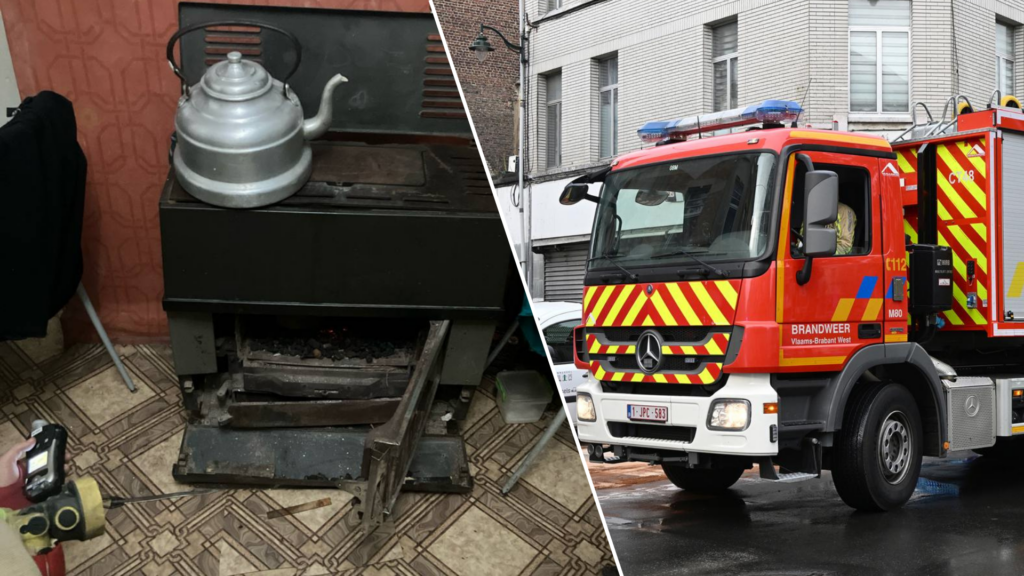The Brussels Fire Brigade has sounded the alarm over the risk of carbon monoxide (CO) poisoning after multiple people, including children, were hospitalised in various incidents this weekend.
This weekend, the region's firefighters had their hands full with CO poisonings. An elderly woman was poisoned on Saturday and less than 24 hours later, a woman in her 30s was also hospitalised due to poisoning after using a gas-fired space heater. This was followed by several additional incidents, including at a Jette home where a family of seven, including five children, were poisoned.
"The source of the deadly gas (tasteless, odourless and colourless) was the use of a barbecue for cooking indoors," said Fire Brigade spokesperson, Walter Derieuw. While the charcoal emitted carbon monoxide, the flat was also being heated with portable fuel stoves with no connection to a chimney. "It was a ticking time bomb, with potentially disastrous consequences."
Symptoms of CO poisoning include headaches, nausea, dizziness and, in severe cases, victims lose consciousness, which could result in death. If people experience these symptoms, they should call the emergency number 112 immediately.
Preventable deaths
In total, the fire brigade reported 12 hospitalisations due to CO poisoning on the night of Sunday to Monday alone. Following the poisonings, Derieuw recalled the 'Dangers of CO' campaign which the brigade launched together with Sibelga (in charge of Brussels' gas distribution network) and the Poison Centre. "Carbon monoxide poisoning is the deadliest form of poisoning in Belgium," said a pharmacist and expert at the Poison Centre.
Between 2018 and 2023, as many as 19 people died each year on average, including three in Brussels. "A tragic figure, all the more so because these poisonings are preventable."
The Brussels Fire Brigade pointed to the classic preventive measures to avoid poisoning. These include installing CO detectors, using suitable appliances, ensuring good ventilation, regular maintenance and inspection, and proper removal of combustion gases.
"People must not use barbecues indoors. It is also recommended to not use supplementary heaters in bedrooms at night. Be sparing with their daily use, and ensure good ventilation and fresh air," Derieuw said.
Related News
- Two home fires every day: Domestic blazes on track to break record in Brussels
- Elderly woman hospitalised with serious CO poisoning in Molenbeek
As temperatures drop in Belgium, the risk of CO poisoning rises every year, as people turn on the heating again, or light fires in (partially) enclosed spaces to stay warm.
Additionally, soaring heating costs mean fewer people ventilate their homes, and cut costs by using cheaper fuels, skipping maintenance, not replacing malfunctioning appliances, or opting for unsafe second-hand appliances.
In recent years, the number of non-compliant installations – often poorly maintained or the work of non-professionals – has increased.

